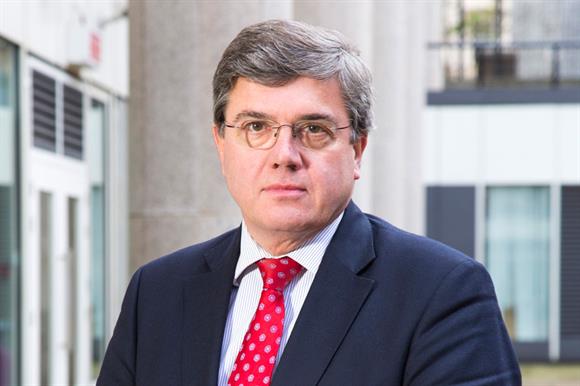Complacency & Inexcusable Failure to Address Suicides and High Self-Harm

HMP Swansea – Complacency & Inexcusable Failure to Address Suicides and High Self-Harm
HMP Swansea had a ‘complacent and inexcusable’ approach to the safety of vulnerable prisoners, failing to respond effectively to high levels of self-harm and suicides of new prisoners, HM Inspectorate of Prisons (HMIP) found. Peter Clarke, HM Chief Inspector of Prisons, said that inspectors in 2014 had warned that the prison needed “to be energised, rejuvenated and refocused on delivering better outcomes.” The inspection in August 2017 was very disappointing. “It is clear that the complacency we warned about after the last inspection had been allowed to take hold.” 38 recommendations from the last inspection had not been achieved.
Inspectors were concerned by evidence about eight self-inflicted deaths of prisoners in their early days in Swansea. They found the prison had not fully acted on recommendations by the Prisons and Probation Ombudsman (PPO), which investigates deaths in prisons. The HMIP report noted: “There had been four self-inflicted deaths since our last inspection, all of which occurred within the first seven days of arrival at Swansea. At our last inspection in 2014, there had also been four self-inflicted deaths; all of those men had similarly taken their own lives during their early days at Swansea. Subsequent recommendations by the PPO had not been fully addressed or monitored.” Mr Clarke commented that the PPO recommendations were “significant and highly relevant” and failure to implement them “was inexcusable – particularly as, in the previous six months, there had been 134 incidents of self-harm – three times the rate that was recorded at the last inspection.”
Inspectors found that the risk assessment of new arrivals was weak and had not significantly improved since the 2014 inspection. Mr Clarke said: “Basic procedures designed to improve safety, such as assessment, care in custody and teamwork (ACCT) documentation, were poor. In the context of the high levels of self-harm, suicide and prisoners presenting with mental health problems, this was inexplicable. Much more needed to be done to analyse and understand what sat behind the suicides and self-harm in the prison.”
A third of prisoners said they had problems with feeling depressed or suicidal on arrival at Swansea. 53% said they had problems with drugs and 32% has problems with alcohol on arrival, higher proportions than in comparable prisons. However, “far fewer” prisoners than at similar jails said they had received help with drug or alcohol problems. Inspectors noted: “Mental health provision did not meet the high level of need, although the care that was provided was good.” The suicide constant watch cell was “unwelcoming, dirty and unfurnished.” In the early 1980s, Swansea had started the Listener scheme – prisoners trained by the Samaritans to support vulnerable fellow prisoners – and this developed into a nationwide service. In Swansea in 2017, enthusiastic and committed Listeners felt underused and undervalued.
Violence had risen in Swansea since 2014 and drugs were a significant problem. Far too little attention was paid to ensuring that the 458 men could obtain the “very basics for everyday living”, such as socks, boxer shorts and sheets. Reflecting findings in other jails – captured in HMIP’s 2017 Living Conditions report – inspectors noted that Victorian, inner-city HMP Swansea was overcrowded and “prisoners usually had to eat their meals next to their toilets, which did not always have seats or lids.”
A further area of significant concern was that ‘purposeful activity’ was particularly disappointing, having fallen to the lowest possible HMIP assessment of ‘poor’. Mr Clarke said: “For a prison of this type to have a regime where half the prisoners are locked up during the working day, with unemployed prisoners locked up for around 22 hours each day, was unacceptable.” Inspection of resettlement work showed that half of those released did not have ‘sustainable accommodation’. The report also noted that there were no programmes for the many men who had problems with domestic violence.
Inspectors made 57 recommendations.
Mr Clarke said: “The current governor had a number of coherent plans for improvement and had made some progress. He was enthusiastic about the future and he has the opportunity to move the prison forward and to once again make it a decent, safe and productive establishment. However, to do so he will need the active support of his leadership team and staff at all levels within the prison and in Her Majesty’s Prison and Probation Service (HMPPS). Grudging acceptance of change or passive resistance will not suffice.”
Michael Spurr, Chief Executive of Her Majesty’s Prison & Probation Service, said: “The Governor and his team have taken immediate action since the inspection to strengthen safety arrangements in the prison and reduce self-harm. This includes work to improve the level of care and support given to new prisoners in the first night centre. A new senior operational manager has also been recruited to focus on safety and enhanced suicide and self-harm prevention training is being given to staff to increase interventions and support available to vulnerable prisoners. I’m pleased that the Inspector has recognised the progress that has already been made. A robust action plan is in place to address the recommendations in this report.”
Download the press release: http://bit.ly/2CB24d7 Download the full report: http://bit.ly/2CASwyN





